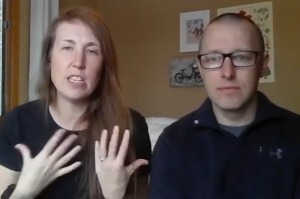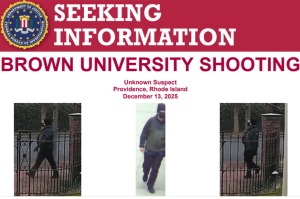Faith-Based, Science-Based Critics: Dan Brown Needs to Do More Research
While secular scientists and religious fundamentalists may find themselves at odds over many issues, they've come to the same conclusion when it comes to at least one.
Both sides agree that Da Vinci Code author Dan Brown doesn't research thoroughly or deeply enough when writing his best-selling novels.
In the weeks ahead of the release of the movie "Angels & Demons," based on Brown's first best-selling novel, conservatives such as Catholic League president Bill Donohue have been slamming Brown for claiming as "factual" some details in his book that experts say are not.
"Dan Brown says in his book (Angels & Demons) that the Illuminati are 'factual' and that they were 'hunted ruthlessly by the Catholic Church,'" noted Donohue, referring to the Enlightenment-era secret society that is the focus of the upcoming movie adaptation of Angels & Demons, which hits theaters Friday.
Furthermore, as Donohue pointed out, Brown said in a promotional interview that the Illuminati "vowed vengeance against the Vatican in the 1600's."
"The early Illuminati – those of Galileo's day – were expelled from Rome by the Vatican and hunted mercilessly," the author had said.
Donohue, however, said "all of this is a lie," noting that the Illuminati were founded in 1776 and were dissolved in 1787.
"It is obvious that Galileo and Bernini could not possibly have been members," he argued, referring to the two 17th century scientists. "Galileo died in 1647 and Bernini passed away in 1680. More important, the Catholic Church never hunted, much less killed, a single member of the Illuminati."
More recently, scientists have also come out to clarify for book lovers and moviegoers the truth behind claims made by Brown, though most are well aware that his books are works of fiction with snippets of facts interwoven – not vice-versa.
Marcela Carena, a senior scientist at the lab and a professor at the University of Chicago, told the Courier News this past week that the concept of anti-matter in Angels & Demons is right, but the quantity that appears in the story is "impossible."
According to Carena, it would take the largest anti-matter factory in the world about 190 million years to make the quarter-gram of anti-matter that threatens Vatican City in Angels & Demons.
Brown apparently "didn't do a lot of research" about the science involved in his book, Carena told the Courier News.
Despite its inaccuracies – historical and scientific – "Angels & Demons" is expected to score big in the box office this weekend.
The movie had been reviewed by semi-official Vatican daily L'Osservatore Romano as "harmless entertainment" that "hardly affects the genius and mystery of Christianity."
While it praised director Ron Howard for the "magnificent" reconstruction of church monuments such as St. Peter's Basilica and the Sistine Chapel, L'Osservatore Romano stopped short of endorsing the film and compared it to a video game that "first of all ignites curiosity, and then, perhaps amuses a little also."
Furthermore, the newspaper noted that the Catholic Church is on the side of the good guys in "Angels & Demons," unlike "The Da Vinci Code," to which the upcoming movie serves as a sequel.
In The Da Vinci Code, author Brown had vilified the Catholic group Opus Dei as a secretive and murderous cult – a depiction that the U.S. Conference of Catholic Bishops denounced as "deeply abhorrent."
In "Angels & Demons," however, it is the Catholic Church that protagonist Robert Langdon is working to defend, and the group suspected of trying to destroy Vatican City is one, unlike Opus Dei, that is no longer operating today.



























